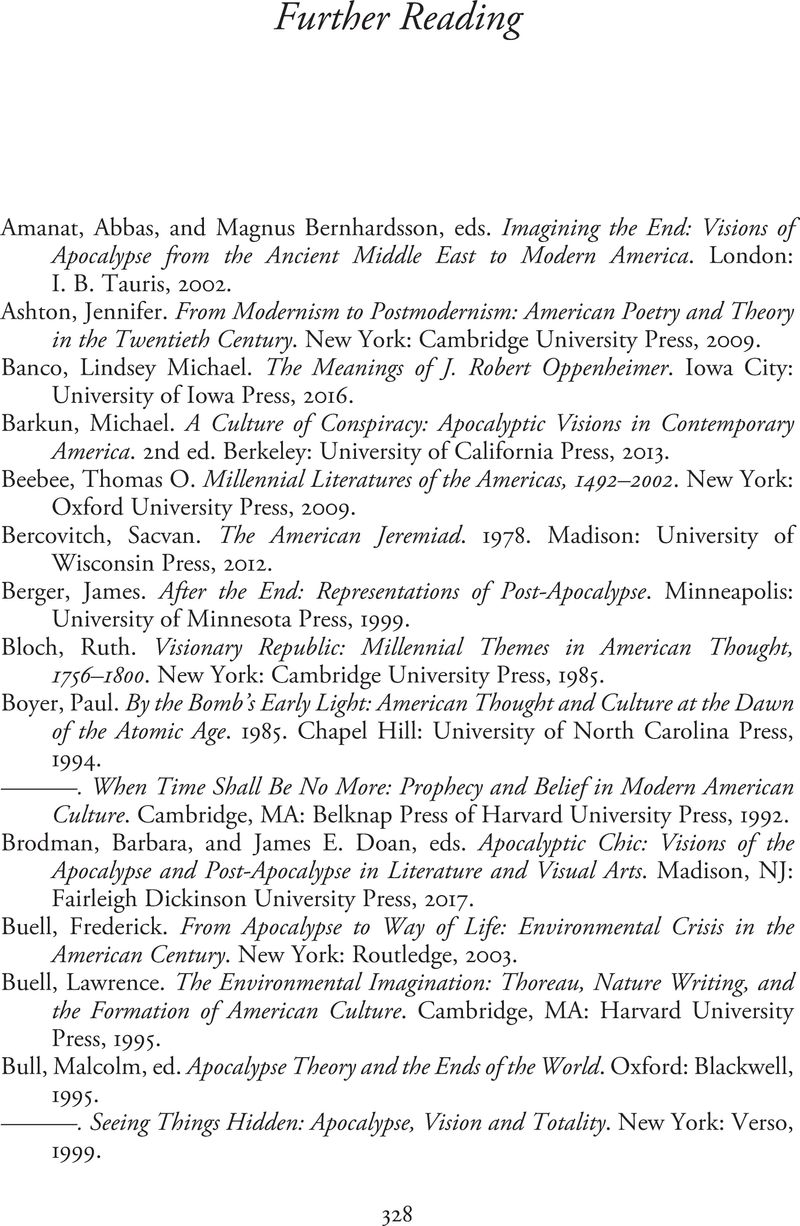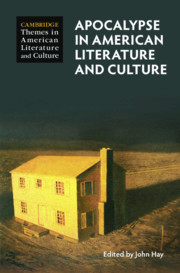Book contents
- Apocalypse in American Literature and Culture
- Cambridge Themes in American Literature and Culture
- Apocalypse in American Literature and Culture
- Copyright page
- Contents
- Figures
- Contributors
- Introduction The United States of Apocalypse
- Part I America as Apocalypse
- Part II American Apocalypse in (and out of) History
- Part III Varieties of Apocalyptic Experience
- Further Reading
- Index
- References
Further Reading
Published online by Cambridge University Press: 03 December 2020
- Apocalypse in American Literature and Culture
- Cambridge Themes in American Literature and Culture
- Apocalypse in American Literature and Culture
- Copyright page
- Contents
- Figures
- Contributors
- Introduction The United States of Apocalypse
- Part I America as Apocalypse
- Part II American Apocalypse in (and out of) History
- Part III Varieties of Apocalyptic Experience
- Further Reading
- Index
- References
Summary

- Type
- Chapter
- Information
- Apocalypse in American Literature and Culture , pp. 328 - 332Publisher: Cambridge University PressPrint publication year: 2020



